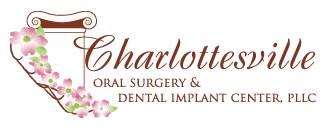25 Jul What is considered a dental emergency?
Imagine this scenario: It’s midnight, and you tripped over the cat on the way to the fridge for a late night snack. You realize that a tooth is missing and your gums are bleeding. Many dentists won’t be in until the morning, so what do you do until then?
This situation would be considered a dental emergency. Other examples of dental emergencies include severe toothaches, signs of infection that may indicate an abscess (such as fever and dental or facial pain) or facial trauma that results in damaged or lost teeth or fractured facial bones.
If you experience a dental emergency during normal office hours, call your dentist or oral surgeon to see if you can be examined as soon as possible. If the emergency occurs after business hours, either seek guidance from the office’s on-call dentist or head to the emergency room if you are experiencing severe pain or continued bleeding.
Your initial treatment after a dental emergency is likely to be a stop-gap measure that addresses only the immediate concern. Dental emergencies also are likely to require follow-up treatment by dentists or other specialists, such as oral surgeons or periodontists. In particular, patients who have suffered tooth loss may want to consult with an oral surgeon to explore dental implants to replace those teeth.
The interventions performed following a dental emergency will vary depending on the complexity of the situation. Some issues may be addressed with a simple restoration. For severe cases, like fractured jaws and certain types of tooth loss, oral surgery may be required.
Some patients consider some other incidents, such as a chipped tooth, to be emergencies, too, due to the cosmetic effects on the smile’s appearance. While these issues may not necessarily be threatening to a person’s health and well-being, quick action is often desired for aesthetic reasons. However, issues that are solely cosmetic are not cause for a trip to the emergency room. Contact your dentist as soon as possible after the injury to schedule an appointment.
Be prepared for a dental emergency. Carry contact info for your dental professionals with you at all times and seek treatment as soon as possible to maximize your chances of positive treatment outcomes in the long term.
